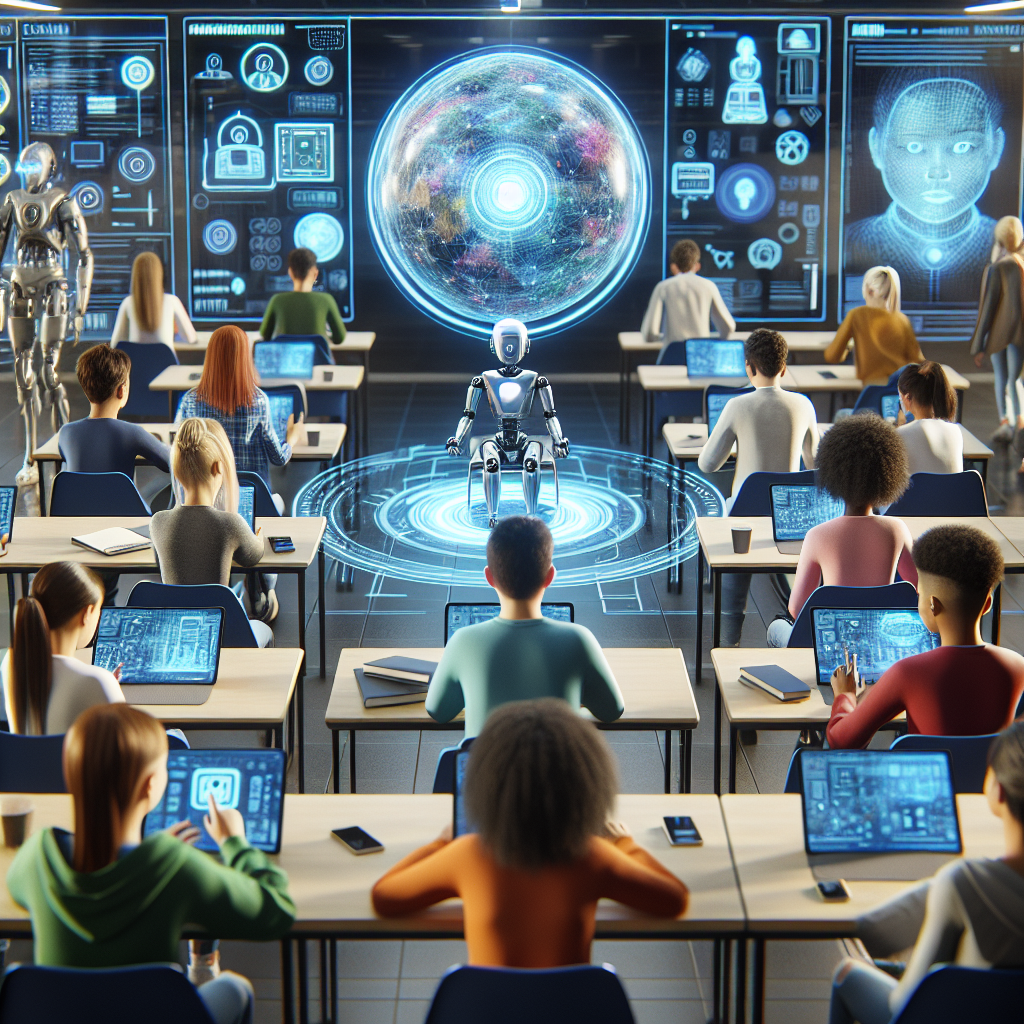The Future of AI Integration in Education
Artificial Intelligence (AI) has been making significant strides in various industries, and education is no exception. AI technology is revolutionizing the way students learn, teachers teach, and schools operate. With the increasing use of AI in education, the future of learning is set to be more personalized, efficient, and engaging than ever before.
AI Integration in Education
AI integration in education refers to the use of artificial intelligence technologies to enhance the teaching and learning experience. This can include personalized learning platforms, smart classrooms, virtual tutors, and automated grading systems. AI technology has the potential to transform education by providing students with tailored learning experiences, assisting teachers in delivering more effective instruction, and streamlining administrative tasks.
One of the key advantages of AI integration in education is its ability to provide personalized learning experiences for students. AI algorithms can analyze a student’s learning patterns, strengths, and weaknesses to create customized learning paths. This allows students to learn at their own pace, focus on areas where they need the most help, and receive immediate feedback on their progress. Personalized learning platforms powered by AI can help students stay engaged and motivated, leading to improved academic outcomes.
AI technology can also assist teachers in delivering more effective instruction. Virtual tutors and chatbots can provide additional support to students outside of the classroom, answering questions, providing explanations, and offering practice exercises. AI-powered grading systems can automate the process of grading assignments, quizzes, and exams, freeing up teachers to focus on providing personalized feedback and support to students. By automating routine tasks, AI technology can help teachers save time and improve their overall effectiveness in the classroom.
In addition to personalized learning and teacher support, AI integration in education can also streamline administrative tasks. AI-powered systems can automate the process of scheduling classes, managing student records, and tracking attendance. This can help schools operate more efficiently, reduce administrative overhead, and improve the overall learning experience for students.
The Future of AI Integration in Education
The future of AI integration in education looks promising, with the potential to revolutionize the way students learn, teachers teach, and schools operate. As AI technology continues to advance, we can expect to see more sophisticated applications of AI in education, including:
1. Adaptive learning platforms: AI algorithms can analyze a student’s learning data in real-time to provide personalized recommendations for learning activities, resources, and assessments. Adaptive learning platforms can help students learn more effectively by tailoring the learning experience to their individual needs and preferences.
2. Virtual reality and augmented reality: AI-powered virtual and augmented reality applications can create immersive learning experiences for students, allowing them to explore complex concepts, interact with virtual objects, and engage in simulations. Virtual and augmented reality technologies can enhance student engagement, motivation, and understanding of difficult topics.
3. Intelligent tutoring systems: AI-powered intelligent tutoring systems can provide personalized feedback, guidance, and support to students as they work through learning activities. These systems can adapt to each student’s learning style, pace, and preferences, helping them achieve better academic outcomes.
4. Predictive analytics: AI algorithms can analyze large amounts of student data to identify patterns, trends, and insights that can help schools improve student outcomes. Predictive analytics can help schools identify at-risk students, personalize interventions, and measure the effectiveness of educational programs.
5. Natural language processing: AI-powered natural language processing technologies can enable students to interact with educational content using voice commands, text messaging, and chatbots. Natural language processing can enhance student engagement, accessibility, and convenience in accessing educational resources.
FAQs about AI Integration in Education
Q: How will AI impact the role of teachers in education?
A: AI technology is not meant to replace teachers but to support and enhance their abilities. Teachers can use AI-powered tools to provide personalized instruction, automate routine tasks, and analyze student data to improve their teaching practices.
Q: Will AI make education more or less accessible to students from diverse backgrounds?
A: AI technology has the potential to make education more accessible by providing personalized learning experiences, supporting students with different learning needs, and improving the overall quality of education. However, there are also concerns about equity, bias, and privacy in the use of AI in education that need to be addressed.
Q: How can schools ensure the ethical use of AI in education?
A: Schools should establish clear guidelines, policies, and procedures for the ethical use of AI in education. This includes ensuring transparency, accountability, and fairness in the use of AI technologies, protecting student data privacy, and addressing bias and discrimination in AI algorithms.
Q: What are the potential challenges of AI integration in education?
A: Some potential challenges of AI integration in education include concerns about data privacy and security, bias and discrimination in AI algorithms, lack of teacher training and support, and potential job displacement for educators. Schools need to address these challenges proactively to maximize the benefits of AI in education.
In conclusion, the future of AI integration in education is bright, with the potential to transform the way students learn, teachers teach, and schools operate. AI technology can provide personalized learning experiences, assist teachers in delivering effective instruction, and streamline administrative tasks. As AI technology continues to advance, we can expect to see more sophisticated applications of AI in education that will enhance student engagement, motivation, and academic outcomes. By addressing ethical concerns, ensuring equity, and proactively addressing challenges, schools can harness the power of AI to create a more personalized, efficient, and engaging learning experience for all students.

